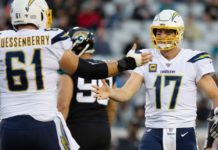I had been looking to geese to keep my spirits up during the pandemic lockdown.
Silly me. You just can’t depend on geese, if what you are looking for is entertainment. They insist on leading their own troubled lives in the face of human attempts to cast them as comedians. The nerve.
I had been watching geese at a nearby park until it closed. The geese were not a problem. They squawked and honked and paraded around in their self-important waddles as geese do. Delightful.
People were the problem. They were not obeying social-distancing rules. They too were flocking to the park, squawking and honking and waddling around in large, unmasked groups. As people do. Not as amusingly as geese.
So with no park available, I began paying closer attention to a pair of geese that had set up housekeeping on the bank of the Hudson near my apartment building. The female had made a nest at the top of a steep bank of rip rap against a chain-link fence. On the other side of it is a bit of lawn, which the male patrolled, hissing to enforce the parameters of human/goose distancing that he felt were appropriate.
I never saw the female move from her eggs. In fact, I never actually saw the eggs, I just assumed they were under her. Sure enough, one day the male and female swam by with five tiny goslings. They must have just hatched. This was the beginning of a good spring, I thought, not to mention a nice little essay about bumbling birds and life reborn in a time of human distress.
I thought it would be like the previous spring, when my wife and I often watched what I believe was the same goose pair with a similar brood. One day we saw the whole group leave the shore following the parents, except for one dawdler who was poking at something interesting under a rock. Suddenly the young goose, still fuzzy in its baby feathers, looked up and saw its family paddling away. It made a mad dash for the water and tripped, tumbling head over large, webbed feet in a pratfall made for a funny home video.
I knew it wasn’t a pratfall to the gosling, just a stab of panic and a fall. Still the baby quickly rejoined its family. We giggled. No harm done. You can see why I had high hopes this year.
Two or three rainy, cold days passed until I saw the two adult geese again. Only one gosling was with them. I couldn’t process what had happened at first. I thought, maybe it was a different pair, or maybe the other goslings went somewhere on their own. But I knew that wasn’t possible. Goslings less than a week old don’t go off, leaving their parents behind. In a few more days the lone gosling was gone too.
They may have been victims of the weather. They could have been eaten by a hawk, I suppose. Are there fish in the Hudson that eat goslings? I don’t know.
It was sad. And surprisingly disorienting. In my mind I had a nice drawing-room comedy going. The geese were my cast. Nothing bad was supposed to happen to them. The plot was simple and satisfying — the goslings would grow. There would be minor setbacks, but as the coronavirus curve flattened they would fatten. The late spring would be good for us all.
No such luck, at least for the goslings. And really, I should have known better. Death is common for young geese as it is for all young animals. In a recent year, among the Canada geese that migrate along the Atlantic Flyway, 30 percent of pairs lost their entire brood in the first three weeks.
We humans don’t face those odds, but our odds have changed recently, and most of us are probably more aware of mortality rates than we used to be. We will do what we can to keep our chins up, and masked. But one failed strategy, for me, was to pretend that the lives of geese are better than our own.
I have no idea what geese feel about lost goslings. If they experience subtle emotions like sadness they don’t express them in a way that I understand. I’m pretty sure they don’t get discouraged or depressed. They can live 25 years, and pairs generally stay together and make a nest each year, whatever happened the last time.
Now that I have freed the geese from my preconceived plot, how do I feel about them? George Gaylord Simpson, an evolutionary biologist who wrote wonderfully about the natural world, once posed the question “what good is a penguin?” — which I am taking the liberty of reading as “what good is a goose?” It depended on what you mean by “good,” he said, dismissing unworthy definitions involving tastiness and other utilitarian ways in which wild animals might seem “good” to humans.
He said, if you’ll forgive one word change: “If you mean ‘Good as it is good in itself to be a living creature enjoying life,’ you are not being crass, stupid or vicious. I agree with you and I am your brother as well as the goose’s.”
Good luck to the geese. Good luck to us all.
Source : Nytimes














